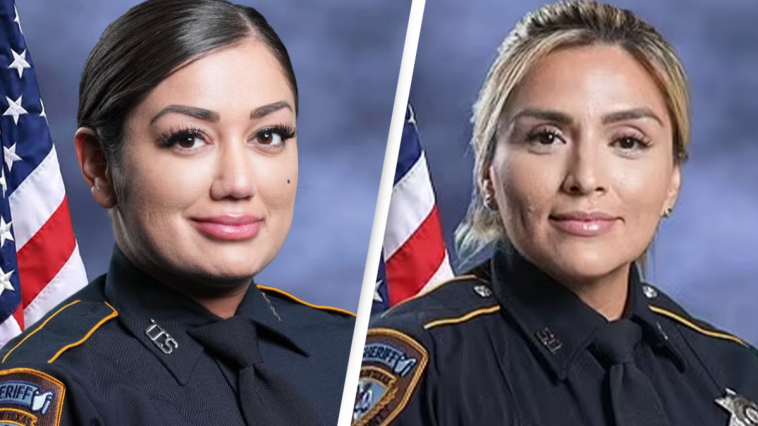Four former and present Harris County Sheriff’s Office (HCSO) officers committed suicide in the previous six weeks, generating important discussions regarding mental health.
According to a 2023 research by the US Fire Administration, between 2015 and 2017, first responders accounted for one percent of all suicides in the United States, with law enforcement officials accounting for 58%.
Meanwhile, a report acquired by ABC News in 2024 indicated that 1,287 LEOs and prison officers committed themselves between 2016 and 2022.
More than half (51%) of officer suicides included officers from local police agencies, with 20% coming from sheriff’s offices.
In the previous month, four more LEOs have joined those devastation figures.
Here’s all we know about their fatalities and how Houston-based HSCO is providing mental health support to surviving cops.
HCSO Deputy Christina Kohler died one day after being reported missing.

On March 13, a Houston Regional CLEAR Alert was issued for Christina Kohler, a 37-year-old HSCO veteran.
The first responder, who joined the office in 2018, was last seen on March 12, according to a Texas Center for the Missing post.
At the time, authorities stated Kohler constituted a ‘serious danger to her own health and safety’.
However, it was subsequently revealed that the law enforcement officer died on the day she was reported missing, with Constable Mark Herman stating, “Her name, her life, absolutely deserves to be remembered for her commitment to our profession.”
Kohler was most recently assigned to the courts division as a bailiff in the 182nd District Court, according to The Houston Chronicle.
HCSO Deputy Maria Vasquez’s death was reported last week.

Three days after Kohler’s death, the Medical Examiner’s Office reported that HCSO Deputy Maria Vasquez, who departed the agency in December 2024, had also committed suicide on March 16.
The 42-year-old was found dead at her house in the 8600 block of Almeda Genoa Road, Houston.
Kohler and Vasquez’s lives were remembered in an HSCO Facebook post, with the Office’s Community Engagement Division saying, “Heaven has acquired two lovely angels.
“May their memory be a blessing, inspiring strength and comfort to their friends, family and coworkers during this challenging time.”
Two more former deputies have taken their lives.
Kohler and Vasquez are not the first fatalities to upset the HSCO; 61-year-old former deputy William Bozeman was discovered under identical circumstances on March 19, according to ABC 13 Eyewitness News.
According to the medical examiner, Long Nguyen, 58, who made his HSCO debut on February 6, also committed suicide.
Experts urge struggling first responders to’reach out’.

Dr. Ron Acierno, Director of the Trauma and Resilience Center at UTHealth Houston, has said that the stigma associated with officers seeking mental health care during both employment and retirement has to be reduced.
“Much like the veteran and active-duty communities, the goal is to tough it out. Or whether it’s because they didn’t realize the treatment was there or didn’t believe it would help,” he told Click 2 Houston.
He noted that the Trauma and Resilience Center provides mental health care to Texas first responders.
“We have effective remedies. They’re not enjoyable. They are uncomfortable. They’re really action-oriented. The emphasis is on modifying your actions to affect how you feel.”
Meanwhile, Dr. Thomas McNeese, head of the Harris County Sheriff’s Office Behavioral Health Division, has recognized the profession’s heavy emotional load.
He said that the occupation ‘takes a toll on individuals’ and that it has the potential to ‘transform’ a person.
“I’m reaching out. Getting some assistance. “Doing something to avoid getting stuck is extremely important,” he said.
What does the HSCO provide in terms of mental health support?

Following the deaths of four former and current officers, the HSCO, Texas’ biggest sheriff’s office, is providing’mental health and peer support services to Deputy Kohler’s coworkers as they mourn her untimely loss’.
“The Sheriff’s Office is grateful for the community’s prayers and support, and we offer our deepest sympathies to Deputy Kohler’s family,” he said.
HCSO Constable Sherman Eagleton has also requested that’struggling’ first responders’reach out to someone’.
“You are needed and you matter, even when you feel your lowest,” he posted on Facebook.
“Our brothers and sisters in blue, look after each other. Don’t bear the weight alone; your family is here for you.
Meanwhile, Harris County Deputies Organization President Jose Lopez said that he and his fellow officers are aware of the gravity of the issue.
McNeese said that the suicides in recent weeks have put a pressure on the whole office, prompting discussions on how to enhance the agency’s mental health division.
“Something like this has ripple effects you don’t realize for years,” he remarked, adding that he thought the separation was ‘too tiny’.
However, he believed that the program may still play a role in ‘destigmatizing’ mental health.
“The hope is to destigmatize it by having us around,” he told reporters. “They realize you aren’t coming to take away their badge. In reality, we are their champion.”
If you or someone you know is suffering or facing a mental health crisis, Mental Health America can assist. Call, text, or chat at 988lifeline.org. You may also contact the Crisis Text Line by texting MHA to 741741.
If you or someone you know needs mental health help right now, contact the National Suicide Prevention Helpline at 1-800-273-TALK (8255). The Helpline is a free, confidential crisis helpline that is open 24/7.




